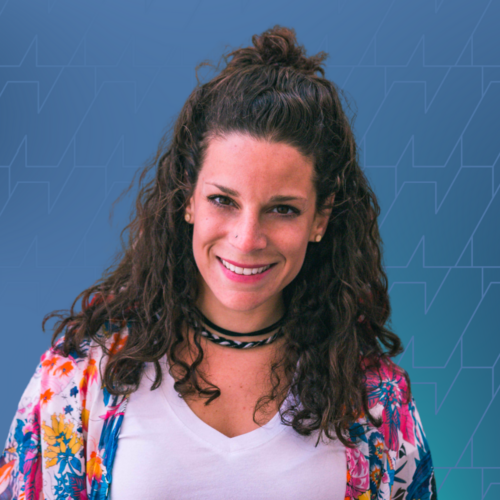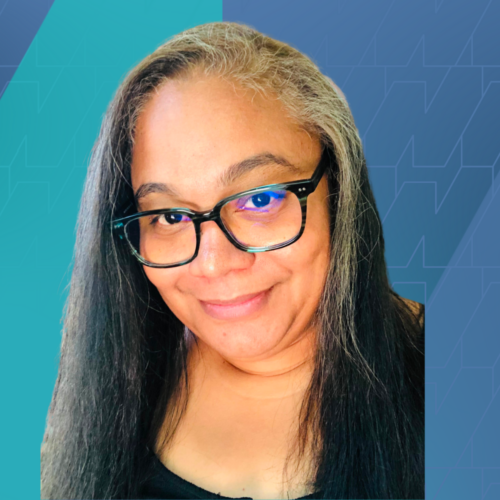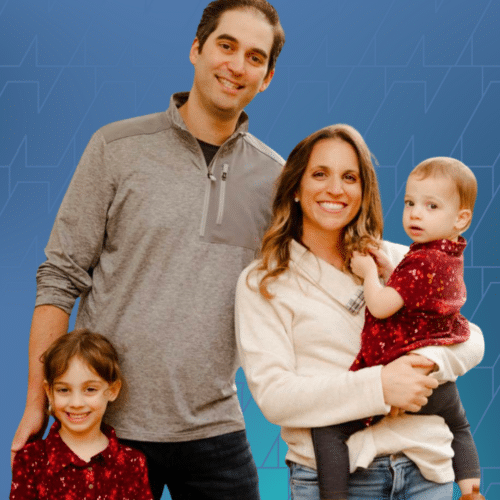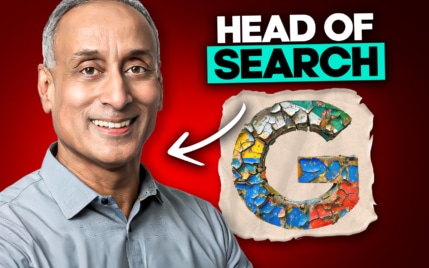How Stefano Treviso Built His Finance Site up to $9.5k Per Month and Sold it for 6 Figures
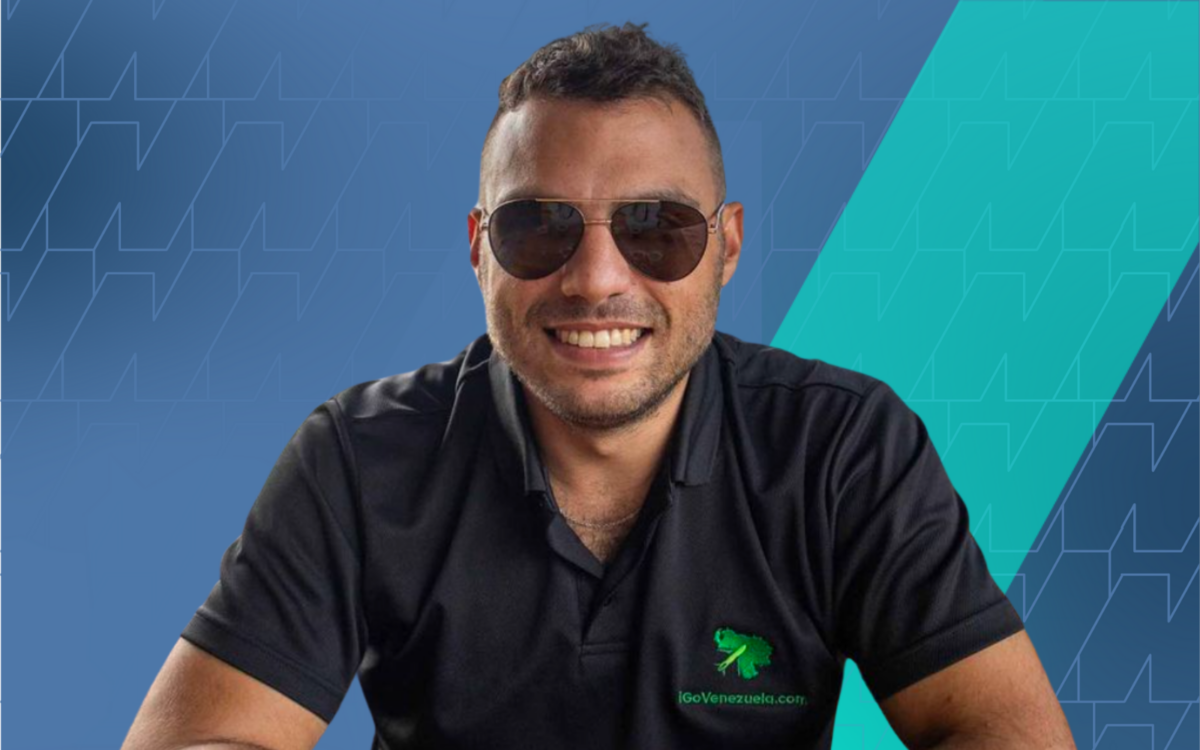
When you buy something through one of the links on our site, we may earn an affiliate commission.
Stefano Treviso’s story is a real rags-to-riches adventure.
After leaving the difficult situation in his home country of Venezuela, he headed to Italy to start over. There he faced a series of unexpected challenges but was able to rise above, and eventually find his way to Spain.
It was there that he officially started to work in finance.
After identifying a gap in the market, he created a site to teach people how to invest: The Trading Bible. After building it up to earn $9.5k a month, he sold it on Empire Flippers.
Today, this serial entrepreneur is living in Dubai, documented his story in a book, and is working on several interesting projects.
Keep reading to find out:
- How his story begins in Venezuela
- What happened after he left
- Why he decided to create his site
- What unique approach he took to build it
- How the site is set up
- His experience in the financial sector
- Other businesses he's working on
- How much traffic the site was getting
- His advice for selling a website
- His main marketing strategies
- His thoughts on SEO
- The resources and tools he uses
- His main challenge
- His greatest accomplishment
- His biggest mistake
- His advice for other entrepreneurs
Contents
- Meet Stefano Treviso
- Why He Created His Site
- How He Set Up The Site
- My Financial Experience
- Other Businesses
- How Much He Was Earning
- Selling the Website
- Stefano’s Main Marketing Strategy
- His Thoughts on SEO
- His Content Creation Process
- His Favorite Resources
- His Go-To Tools
- His Biggest Challenge
- His Most Important Accomplishment
- What He Wishes He Knew When He Started
- His Main Mistake
- His Advice for Other Entrepreneurs
Meet Stefano Treviso
My name is Stefano, and I currently live in Dubai.
I’m working on my new company called MozartCMS, and I also published a book called Zero to Dubai, where I share the story of how I made it here.
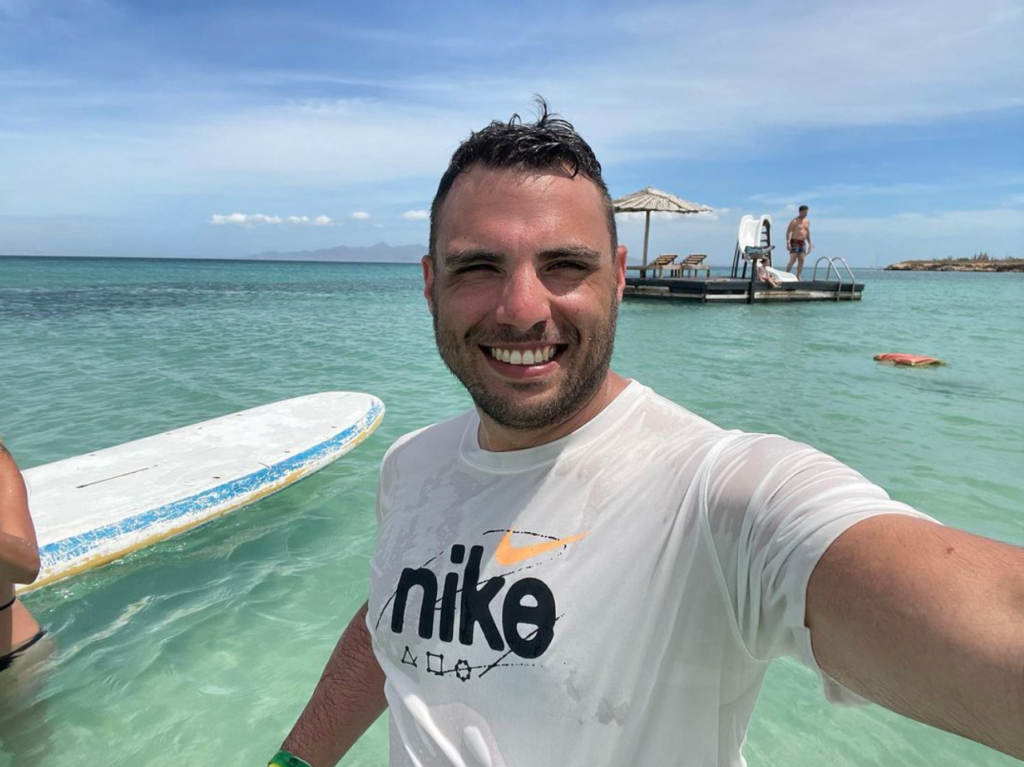
The beginning of my story has absolutely no comparison to my current point. I started from the bottom—really, the bottom.
I was born in Venezuela in the ‘90s and grew up in a wealthy family that became poor due to a lot of circumstances.
I’ve always been a little crazy and showed interest in many different crafts. Playing piano and guitar, singing, filmmaking, cooking, motorcycles, flying RC helicopters and drones, computers and tech. I just find it hard to pick one thing, I love too many!
I spent my early years always hustling and trying new businesses. From everything from selling brownies to Italian ham, coffee, water, and pretty much anything you could think of. I was always looking for ways to make money.
In 2017, after another failure in business due to the country’s complex financial challenges, I had no choice but to leave Venezuela under very precarious conditions, only with 400 euros and a bag.
I went to Italy, to the house of a cousin who offered to host me for three months, yet after barely eight days, they kicked me out, and that’s how my life in the “first world” started. Sleeping on the beach, broke, and using a restaurant’s former toilet as a storage room.
This adventure led me to become a photographer on the beach, then move to Barcelona, Spain, where I played poker for a living until I found my first job as a sales agent for an online broker.
That’s how I entered the financial space for the first time, and from here, the inspiration to start The Trading Bible would come shortly.
Why He Created His Site
I had almost one full year working in finance and I had just switched temporarily from a sales position into a customer support position at another company so I could get a relocation package benefit and move to the island of Cyprus, where I thought I could find better opportunities.
One evening as I worked answering customers’ live chat questions, I thought to myself, “Someone should make a course or some resources that are truly beginner-oriented so people stop asking all of these silly questions.”
That’s when it all started.
I went and researched online and saw that all the other websites were offering content made for the wrong audience. Somehow, it seemed (in my opinion) that the financial knowledge offering was:
- Expensive courses full of beginner topics explained in a complex way (built by scammers, affiliates, marketing gurus)
- Decent courses made by finance professionals but completely out of language for a beginner, and very expensive
There were no high-quality beginner resources that could actually help people learn about finance and trading.
After a little research, and on that same evening where I had the idea, I wrote a big outline with what I thought someone needed to learn to truly understand trading, investing, etc.
A few months passed while I began playing with the idea of making a course until it was ready and I launched it. Right after that it’s when I built the first website and a very complex decision was about to be made.
I bought the domain in February 2019 and parked it until September, when I launched my first basic HTML pages.
It was a new domain and bought it for the cheapest price ever as it was not a premium name or anything. I have no idea why someone wouldn’t consider it premium. The Trading Bible was a great name, in my opinion.
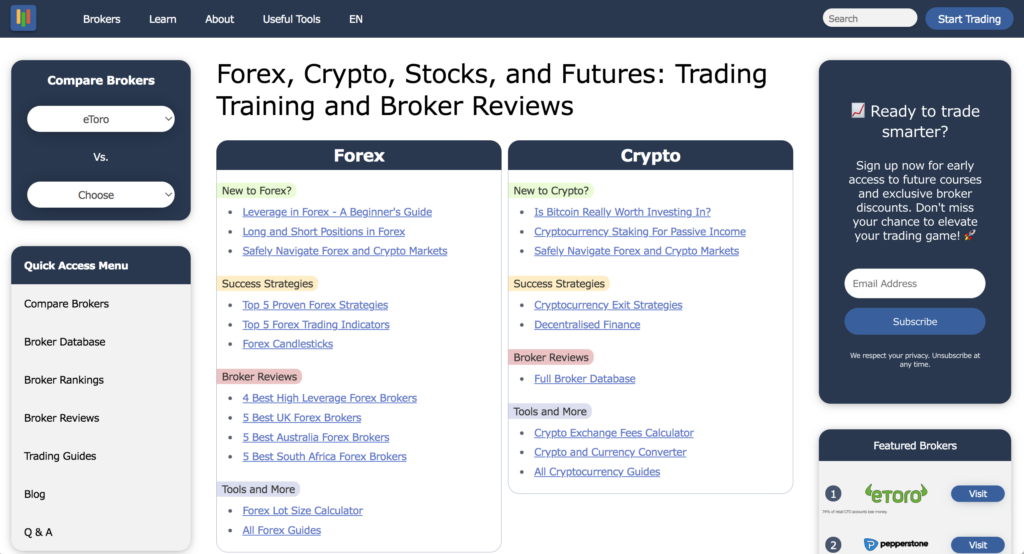
How He Set Up The Site
The first thing I did when I wanted to build the site was to take a look at WordPress, and oh god… I hated it. I felt like a tiger in a cage.
Being a natural rebel, I couldn’t stand the idea of working with a tool where everything was so complicated (at least in my personal opinion).
Because I had already been learning some basic programming, I decided to launch my own site using four static HTML pages as a start and a shared hosting provider that gave me access to the cPanel and other important back-end software.
Fast forward a little bit, and I continued learning more advanced programming, more specifically PHP and JS, and after long hours of designing, coding, and testing, I launched my own custom CMS and moved my hosting to AWS.
It didn’t have a name back then, but now it’s called MozartCMS. It was very rudimentary, but it achieved the results I wanted.
I understood that I was entering the most competitive niche in the world and that I was not being smart about it and picking a small unexploited niche.
So in my head, I understood that to compete with the big guys, I needed to have some advantages. Let me explain.
The Trading Bible uses the following tech:
- AWS Lightsail Virtual private server
- AWS S3 Buckets (for storage)
- AWS Cloudfront (content delivery network for distribution)
- TinyPNG (for image compression)
What all of this means is that the website runs blazing fast, gets its resources (such as images) delivered from the most optimal location closest to the user, and also, because of the way I wrote the code, the amount of it is small, optimized, and clean, which results in search engines liking it more.
Think about it for a second. If you were building your own search engine, would you consider using custom code to be a positive or a negative signal?
Also, ask yourself the same question: would you consider a website using WordPress a positive or a negative?
In my opinion, I would consider it a negative. Since I know the entry barrier to a WordPress website is so low and easy, I wouldn’t allow my search engine to recognize any WordPress website for a decent amount of time to prevent spam sites from getting indexed.
That’s where custom wins the game. You get to build a blazing-fast site with full search engine optimization, lightweight code, simple design, proper XML sitemaps, schema markup, and with professional multilingual capabilities.
The result was building a website that operated in Spanish, English, and German with interesting tools that produced automated output. For example one of my favorite ones was the broker comparison tool.
By building my own internal database of brokers, I was able to create a tool that matches them against each other and creates the perfect comparison. This generated more than 3,000 unique URLs, which also helped me gain traction and small amounts of traffic without writing any content at all.
All I did was enter a broker’s information one time, and then my system did the rest.
I never used a keyword research tool to do any of this; I used knowledge. Nowadays I would do it differently for sure, but that was my experience at that time.
I started writing articles about whatever I thought wasn’t covered in finance. Answers to questions about forex trading, broker reviews, etc.
My Financial Experience
Since I was a teenager, I researched and read non-stop about forex, stocks, and trading overall, just out of a passion to learn about it.
Now, when it comes to timeframes, let’s say it was in the summer of 2017 when I officially started working in finance.
For example, by the time I upgraded my website to my own system which was fully scalable and at its best, I already had around 3 ½ years of being in the financial industry.
Other Businesses
Back in Venezuela, I started many but hyperinflation and the country’s situation would always eat me alive. I failed many times before, but always learned something from each of them.
This website was my first business from the point I left home, and now I’m focusing on few new ideas:
- MozartCMS, as I basically built my own WordPress and plan on helping people own a custom system deployed with top-level tech to give them an edge on building their niche sites
- Zero to Dubai, the book where I tell the full story I lived to overcome my challenges in life and make it here
- I Go Venezuela, a tourism website to help my own country gain some traction in that area and to also test my own custom version of Mozart made for tourism sites. I already own 20+ domains with this brand and plan on using the same system to power all of them.
- Glofinex, which is a new company in the same finance space powered by Mozart but focusing on super niche-picked websites in the finance space.

How Much He Was Earning
My website made money directly from brokers paying for booking placements on our site, so we got paid directly by them using bank transfers.
That meant that I could have three brokers booking a placement today and my month’s revenue could pump up to 20k and then amount to nothing the next month. It’s because of how my adverts offer was constructed that I would earn money like that.
The chart above is one year of business. A very important thing to point out, what you see in expenses is simply me paying myself salaries, which was my only expense along with $20 a month in server costs.
So, in the last year, the site was earning around $9.5k per month.
Below is a screenshot from Empire Flippers
In terms of traffic, we were getting anywhere from 10,000 to 20,000 monthly visitors. This is a very small amount of traffic for some people, but in the space of finance, it’s not. It’s highly valuable, especially when you achieve high intent.
Selling the Website
I sold the site via Empire Flippers, an international marketplace for these types of transactions. It was straightforward and easy.
My business got reviewed, and I had to provide all possible data on it for them to evaluate and accept it.
After that, it was merely waiting and answering questions from several interested buyers over a period of time until one of them decided to make an offer.
The reason I sold it was because I was burned out and needed finally to get a home and stability. I was a homeless guy that grew into all of this, and I had been under pressure and stress for as long as I could remember, and I really needed to finally feel at home.
As for advice for anyone looking to sell their site, I would say this:
1. Only sell your website if you’ve got a clear goal for the money (e.g. starting a new business, buying a house, etc).
Don’t sell just for the sake of money. If you're not prepared to be an investor, or you don’t have the knowledge, then you’re losing money every second it sits in the bank.
In my case, I didn’t want to sell, but I understood I needed finally to be a normal person, live in a house, and not be wandering through the world.
2. From the moment you start your site, keep everything separate from your personal stuff. Have a dedicated email for the site, and never mix things up.
When you sell, you need to transfer everything to the new owner, and sometimes, you can end up accidentally losing important data or subscriptions because you had it linked to your personal account.
3. From day one, keep a record of what you spend, where, and how much you earn, and screenshot it every single time and build a nice folder. It will save you hundreds of hours of research for when you want to sell in the future, as all of this is needed in great detail.
4. Write an operating manual and structure it well. Think about how the next person will run the business, and write a book teaching them how to be you.
I waited approximately seven months to find a proper buyer. Some websites can sell in barely a month, but my case was very particular as my site was completely custom, which meant that only someone who understood how to maintain and grow a custom site could become the buyer.
With regard to the price, I made a decision.
Since I already had a lot of future revenue in my pocket, I discounted it from the sale price as this revenue should belong to the new owner.
Also, I was well aware of the unstable nature of my line of business, so I made the decision to reduce the price even further to guarantee that the buyer had extra capital to grow and scale.
I still continue to advise, and we have a great relationship.
If I’m being 100% honest, if I had had peace of mind, my own house, and some stability in life, I would have never sold it.
I believe in the potential of that site to become a world-leading finance name for the average person, but in the end, I’m happy with my decision anyway. I guess I needed stability more than anything else.
Stefano’s Main Marketing Strategy
We didn’t make money from people; we made money from companies. It was a B2B business. Brokers would pay us to advertise on our site.
Instead of focusing on a high volume of traffic, we focused on ranking for specific high-value, high-intent keywords.
This means that even though a particular article got 100 page views in a month, those page views were worth more than gold because they resulted in clicks from people who wanted to invest with a particular broker and generated the leads they wanted.
We didn’t have volume, but we had quality, which made brokers want to pay to advertise with us.
To get brokers to advertise, I simply put myself in their shoes (since I also worked for many and understand what they think) and created great ROI opportunities with the right types of packages.
I would keep track of conversions using specialized software for that industry which brokers provide, and I would always analyze if the numbers they get are worth what they pay me for the exposure. It was.
Then I would simply try to contact brokers via their affiliate departments and establish a relationship to get them on board and then reach their marketing departments.
Overall, the offer was great for them as the chances of positive ROI were very high.

His Thoughts on SEO
All of our traffic was from search engines. SEO was the core of the business.
The strategy was simple: write content in the finance space and make sure that it’s high-intent articles for long tail keywords and also geo-targeted, to ensure the highest chance of ranking.
I learned everything I know about SEO by using YouTube, watching some of the best channels, and reading articles from Moz, Ahrefs, etc.
Nowadays, you really don’t need to pay to learn anything. You can just use Google and YouTube and you’ll be up and running in no time.
This is the exact way I became a developer as well.
Keyword Research
I was very particular in this area.
Because I was deeply involved in finance and working in the industry, reading and trading myself, I ended up with a lot of knowledge in my head.
So, instead of using keyword research tools, I would simply sit down, open Google, and start searching for stuff I thought people would want to search for and find any potential missing opportunities.
The key to any keyword research strategy is knowledge; it can beat any tool out there.
Link Building
Link building was super important, but I failed miserably at it.
At that time, whenever I heard how much people were asking to be paid for links, I thought I wouldn’t do anything at all and just continue to build them organically.
Unless you’ve got a good budget to invest in high-quality links from reputable websites, I recommend just sticking to the basics and trying to gain guest posting opportunities or get featured by news sources.
His Content Creation Process
To create an article after I selected a keyword, I would research the competition, build a heading structure in a document, and then begin to populate it with the right content. The key is always starting with a full article structure.
Because of the tech part of it, there are more than 3,500 articles live on the website.
Many of them are automatically generated by broker comparisons and the rest are written traditionally.
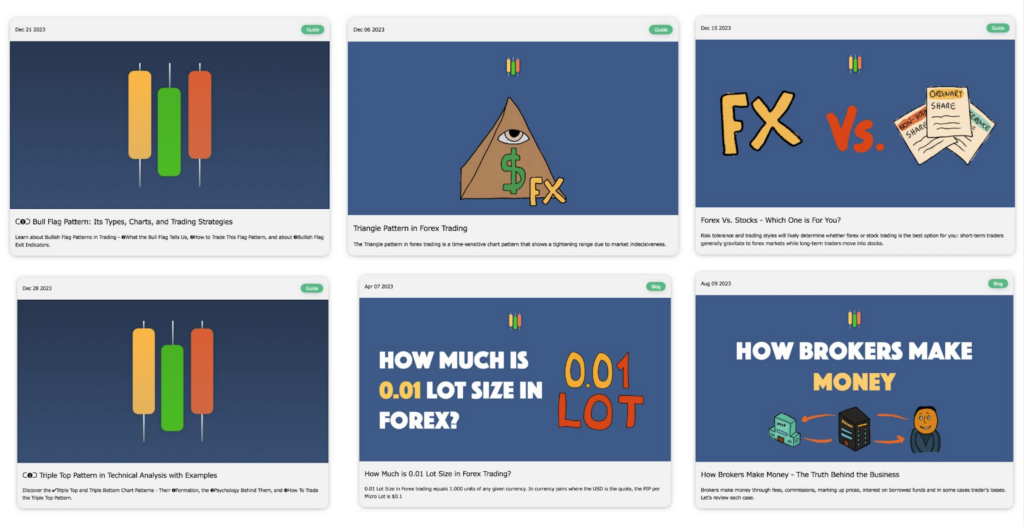
His Favorite Resources
I think anyone can achieve the same results or do even better than I did by simply learning from these sources:
- Niche Pursuits, and
- Income School
You don't need anything else.
These two channels are the most valuable ones; the rest of the channels just want to sell you expensive courses or get you to join communities that look like cults.
For me, Niche Pursuits and Income School are packed with plenty of information that will teach you to do what you’re dreaming to do.
The only thing you need to do is watch every single video on each channel, read their websites, and also check the comments on each video to learn from other people’s experiences.
His Go-To Tools
The main tools I use are
- A pen and notebooks, so I can write all my thoughts
- Asana, the project management software that allows you to have a next-level task planner for free
I don’t need many complex tools.
My processes are easy; I simply download my random thoughts into my notebook using a pen and paper. I begin structuring them into processes and tasks and then I migrate them into Asana so I can have a path for clear execution.
His Biggest Challenge
In my particular case, two things hurt me the most.
Personal life instability: It came to a point where I was burned out and exhausted from the constant changes and feeling of uncertainty because of the life I had to live.
I couldn’t focus anymore and simply stopped working on the website for a long time. I didn’t write content; I didn’t do anything at all.
It’s very important to have some decent level of peace of mind to be able to work and concentrate. What I needed to do was to buy a house to live in, otherwise I wouldn’t feel stable; my mental state was the biggest challenge.
Backlinks: In one of the most competitive niches in the world such as finance, backlinks are a must. You’re competing against people with domains that have 90+ authority.
It was the most stupid decision of my life, yet somehow I managed to achieve all of this. However, if you want my recommendation, never go into a competitive niche, especially without a budget.
Getting backlinks is expensive and I couldn’t do it. Some people even offered me a “guest post” for $9,000 for websites I can’t disclose; it’s just nuts.
His Most Important Accomplishment
Buying my apartment in Dubai and writing my book are definitely my greatest accomplishments.
While I understand that buying a flat or selling a website are not a big deal for some people, for me they are. Let’s not forget I started as a homeless guy and went through hell.

What He Wishes He Knew When He Started
I wish I knew more about the web business and the possibilities it had. I didn’t imagine back in those days that a website could be sold for 25 to 45 times its monthly revenue.
I guess that would have given me even more motivation.
His Main Mistake
My biggest mistake is not making a niche website but, rather, going for the most competitive topic in the world. That was my biggest mistake.
If I would have chosen a proper niche, I could have grown this website a million times more and I wouldn’t have sold it.
The reason for the sale is that I understood I reached my maximum capacity in terms of being able to grow it and my personal situation required me to finally settle down.
The new owner understood the challenges and had the time and the money to invest and grow it properly, so that’s what they are working on right now.
If you go into the website business, pick a niche. Don’t be naive like me and try to rank with your new blog for the keyword “Bitcoin.” What a bad idea!
His Advice for Other Entrepreneurs
The top advice would be to make a business plan. This experience changed everything for me.
A business plan will allow you to understand and see your business from a whole new perspective and figure out solutions to challenges and procedures you wouldn’t even have thought about before.
In my case, thanks to my business plan, I realized I didn’t need much content but, rather, a few articles on some key specific topics to gain the right amount of clicks for our advertising partners.
Want to learn step-by-step how I built my Niche Site Empire up to a full-time income?
Yes! I Love to Learn
Learn How I Built My Niche Site Empire to a Full-time Income
- How to Pick the Right Keywords at the START, and avoid the losers
- How to Scale and Outsource 90% of the Work, Allowing Your Empire to GROW Without You
- How to Build a Site That Gets REAL TRAFFIC FROM GOOGLE (every. single. day.)
- Subscribe to the Niche Pursuits Newsletter delivered with value 3X per week
My top recommendations
